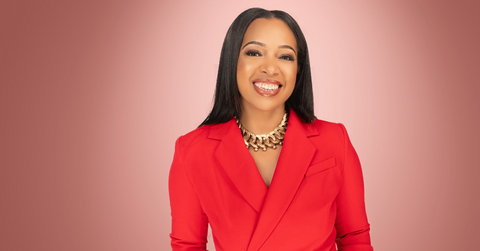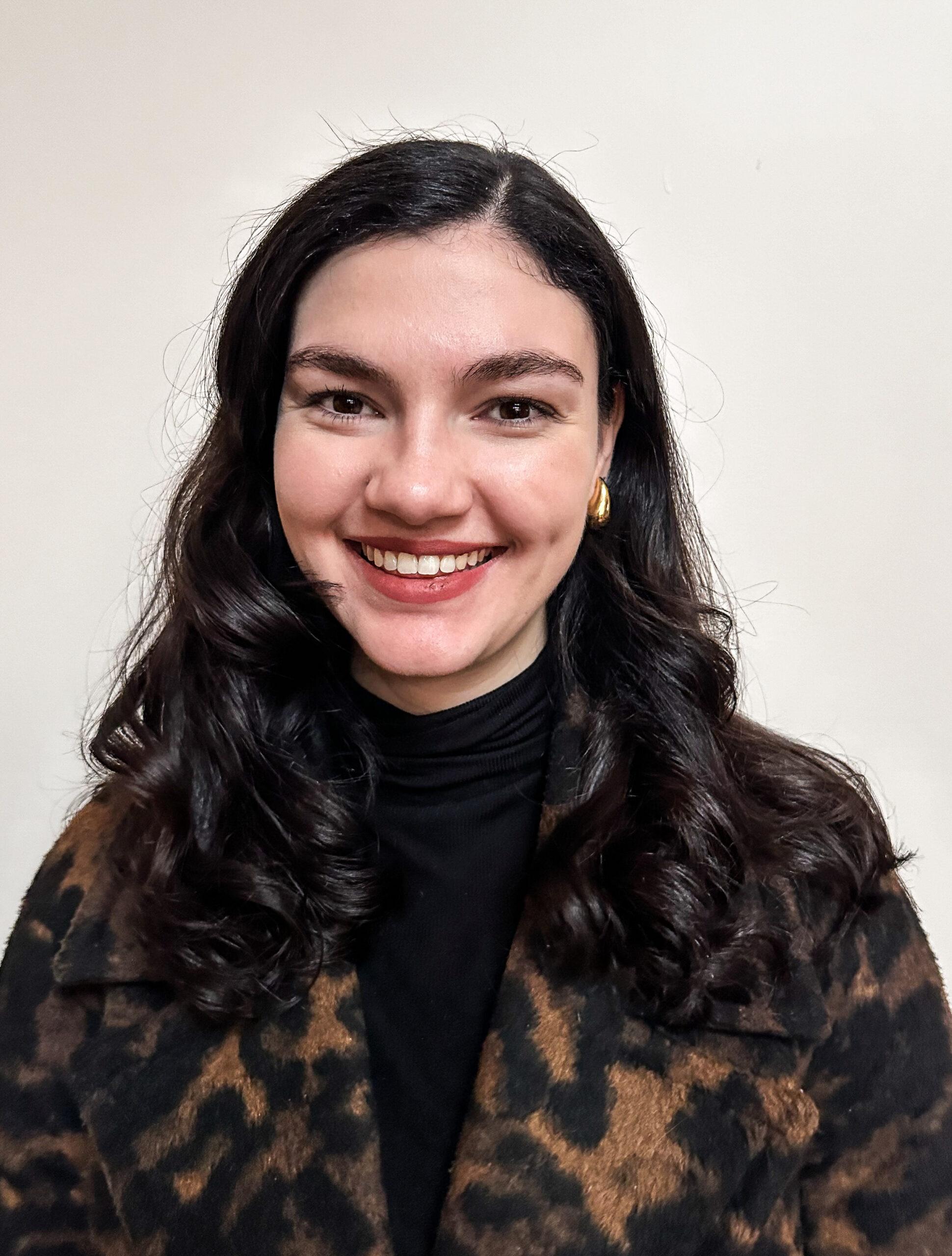Pi-Isis S. Ankhra stands out as a visionary leader who refuses to accept business as usual. As the founder of P.S. 314, a consulting agency that defies traditional corporate structures, she has spent the past decade pioneering a holistic approach to social impact that puts human beings at the center of every strategy.
P.S. 314 was founded as an innovative approach to organizational development, influenced by Pi-Isis’s diverse experience in social impact work, politics, and philanthropy.
In our sit-down interview, Pi-Isis discusses her unconventional approach to matchmaking for social change, the importance of organizational integrity, and the deep work of internally and externally addressing equity.
Her philosophy reads clearly. True social transformation isn’t just about external results but about how individuals show up, challenge assumptions, and continuously unlearn the systemic biases that divide many in today’s society.
Her Agenda: What inspired the creation of P.S. 314, and how did your vision for the agency evolve over time?
Pi-Isis S. Ankhra: It was actually an experiment for me. It was going to be this 10-year experiment to build a company that centered on humans and human-centered leadership. When I first started thinking about that, no one really knew what that meant, but I just felt like there weren’t really a lot of places that thought about the people as much as the revenue, just that it’s not really our culture. Our society [is] very capitalistic driven, and of course, you have to make sure that your bottom line works, but I really wanted to create a space that could support both doing good and doing well.
So, as opposed to this pyramid structure where we’re feeding the top, it was more of a round table where we could all work together. So often, our clients become our consultants and strategic advisors because they know the work. And then sometimes, our consultants become our clients because they go off and run organizations or they’re their own activists.
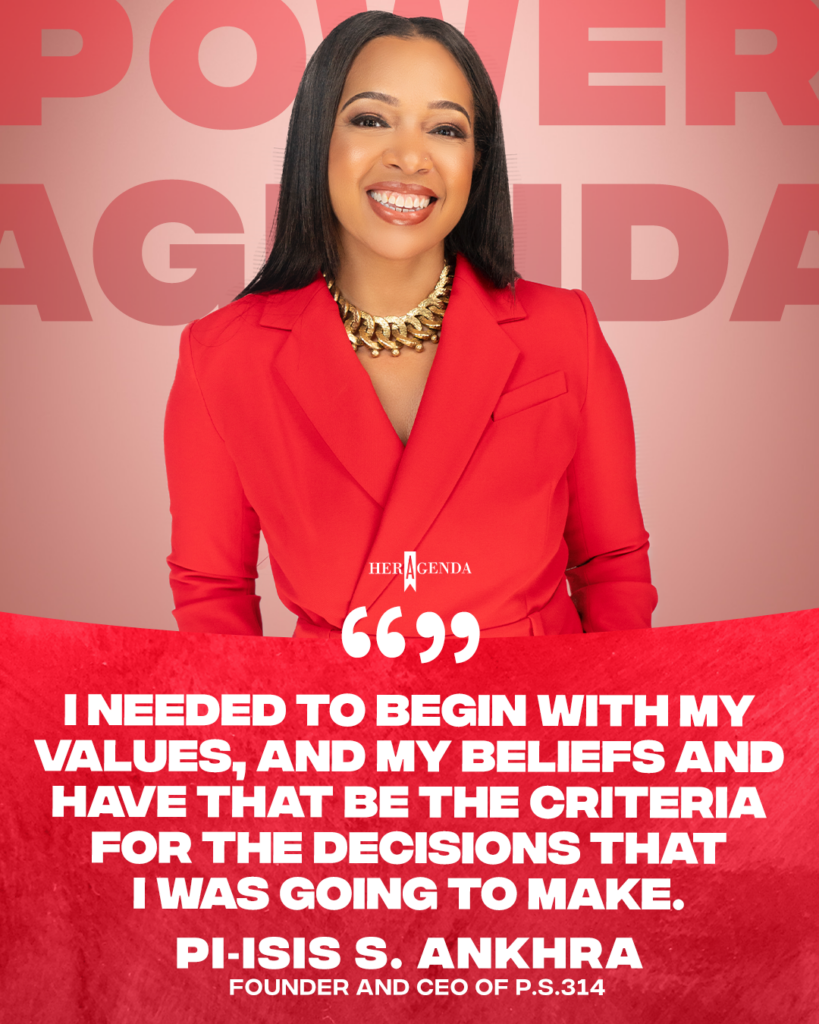
Her Agenda: How do you approach the concept of matchmaking for social change, and what does success look like in that context?
Pi-Isis S. Ankhra: In terms of the process, we are matchmaking talent. So we’re trying to find the best people who have the expertise. We’re matchmaking to find you the right strategy. The right formula.
You don’t want someone who’s going to pace very slowly with someone who’s very fast. So we’ve got to think about those intangible components as well. That’s where we start, and I’m the lead matchmaker in that realm.
Externally, in terms of success, sometimes that looks like we’re solving a problem for a client. We’ve had a client who was overly reliant on one funder. 90% of their funds came from one donor. And that is very vulnerable because if they go away, so does the work. So how do we structure a new plan for them and then train them on it and have this be activated over time so that eventually they’re only reliant on it by 60 to 70%? That’s a success, right? [For] others, we will design a strategy where our clients have raised $30 million in 18 months, and it could have taken five years [but] we found the alignment.
Sometimes our clients are individuals, sometimes they’re businesses, and sometimes they’re nonprofits. Sometimes, we’re starting from the very beginning where it’s just this nascent idea of an artist and activist. And all of a sudden, because of the strategy and being able to [translate] the vision to a practical plan, they become fellows and global activists and award-winning artists. We’ve seen those success benchmarks as well.
For organizational and leadership development, that’s a little bit intangible sometimes. We really work and walk with our clients through transitions, founders who are leaving something that they’ve created over 20 years, and making sure that there’s institutional knowledge going into an organization.
So then, how do we build out those structures? How do we build out a plan, a strategic plan that’s really [going to] amplify them to be at the top of their game? Externally, that’s kind of what success looks like. But internally, it’s a little bit different.
We’ve been in business for 10 year,s and I’ve never done any cold calls. Everything has been through referrals and repeat business. On average, our clients will return between two to three times for more work with us.
That speaks volumes because the nonprofit community, which is the majority of our work in the country, over 70% have budgets of $500,000 or lower. Consultancies are a luxury at times. It’s not necessarily in your budget. While we work with some clients who have a $100 million budget, a lot of them are smaller.
Her Agenda: In what ways has your work at the intersection of advocacy and executive advising brought unique opportunities for change?
Pi-Isis S. Ankhra: My first job I worked for Vice President Gore. I would call that experience grass tops. My very next job was as a public school teacher in Washington, DC, for elementary school, and I would say that’s more grassroots. That’s kind of been my journey professionally, grass tops, grassroots, and everything in between.
And then simultaneously, I’m also a part of communities where the work is actually being done. How do those policies impact everyday citizens? So, while I had talking points when I was on the campaign about immigration, then I would become a teacher just a year or two later. And then some of my students just wouldn’t come back to school because they were deported. We talked about economic inequality when it comes to education, which is really like the microcosm of our world anyway.
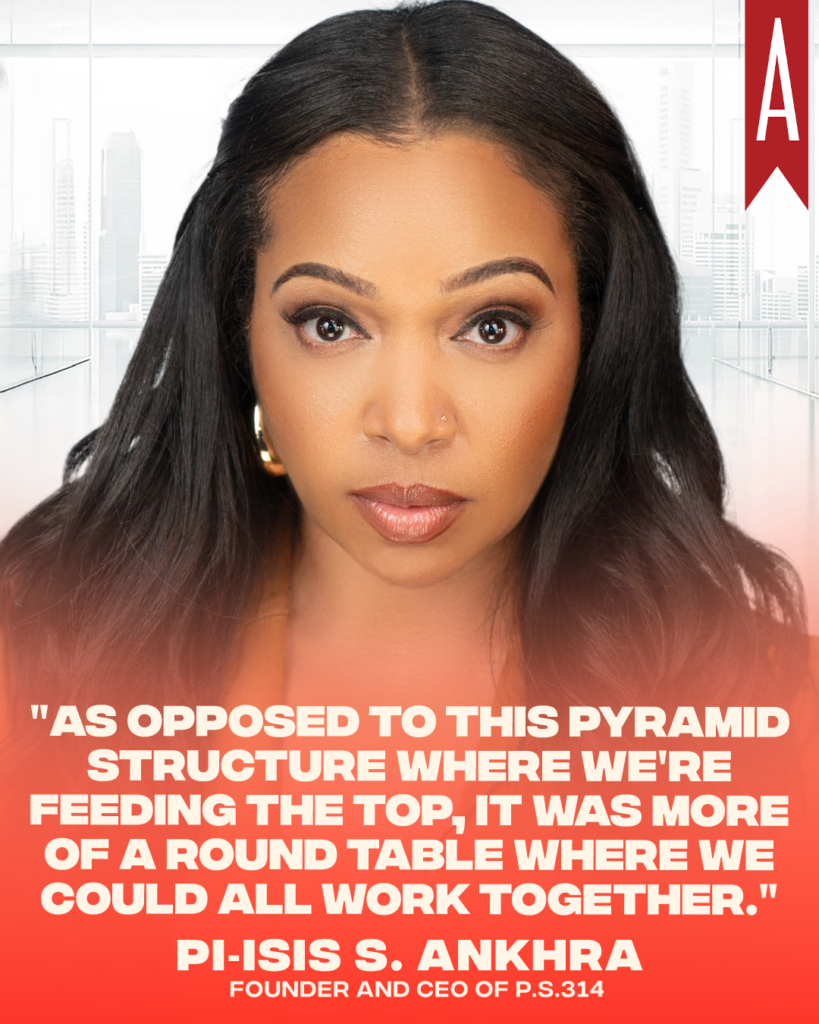
Her Agenda: What challenges have you faced as a trailblazing woman leader in your field, and how have you overcome them?
Pi-Isis S. Ankhra: I’ve always been questioning, and I tend not to have a fear of where to go. So I will often go to who’s in charge.
That’s who I want to talk to because I want to figure out what’s [happening]. So, in a way, I kind of have blinders on. I know what my goal is, and I think I probably learned a lot of that when I worked for Gore because you had to figure out how to get things done.
That’s one thing you learn in a presidential campaign. You find a way to make things happen. I was trained in that way very early on.
When it comes to any kind of discrimination that I might face, it exists. My name is Pi-Isis Ankhara. There are probably opportunities I have never received because someone saw my name and didn’t want me in the room.
My mother told me once: ‘Don’t assume people are treating you a particular way because of who you are. Make them tell you. If they don’t tell you, then how do we know it’s actually there?’ And so that’s the way in which I operate.
It doesn’t mean that I don’t see when I’m questioned more. When my value or my fees are questioned. I used to work at a very large consulting firm versus my own. The work that we do is more compounded, but our value is questioned often. I’m sure that has a lot to do with my identity. We’re definitely a reflection of our society.
I am certainly navigating worlds in which things are not equal or equitable, but I don’t shrink. I really do ask the questions, and I tell the truth, and I keep moving, and I make space for others. I leverage the relationships that I have to make a difference.

Her Agenda: What is your vision for the future of social justice and advocacy in such a rapidly changing world all the time?
Pi-Isis S. Ankhra: We have been socialized to see how we’re different and then judge each other on it. My hope is that we can move away from that a little bit. I think we’re starting to question it a bit more.
When I was working on a film about race in America, I formed partnerships with organizations around the country that addressed racial inequity and reconciliation. One group that I remember was started by two cousins.
One was White, and one was Black. They traced their ancestry back and found that they’d come from the same plantation. They took a road trip and ended up doing a documentary on it. Subsequently, they created an organization called Coming to the Table.
I thought it was so dynamic because it was all about conversations between Black and White people to better understand each other. And there’s a lot of different divisions.
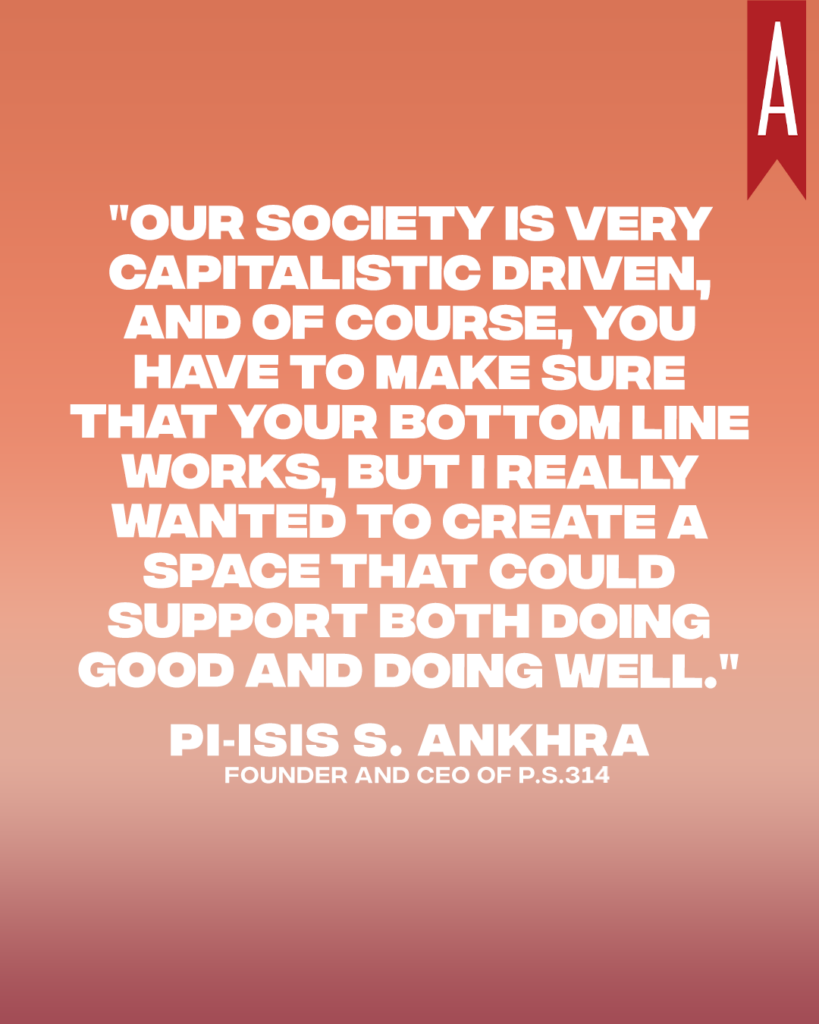
Her Agenda: What advice would you offer to someone looking to start a purpose-driven organization in today’s global landscape?
Pi-Isis S. Ankhra: I always say SWOT (strengths, weaknesses, opportunities, threats) [analyze] yourself first because if you really are interested in purpose-driven work, that’s what we’re asking. You’re asking yourself to consider that [in order to] do good and do well, your integrity is going to hold you. You’re going to have to make certain decisions that are not always for your wellness your prosperity.
Of course, you want to ensure that you’re solvent and you meet your financial goals, but you really need to know who you are, what your values and beliefs are, and what some of your challenges are. And so, when I did that in the very beginning, I really thought about what the purpose that was going to drive me was and what my vision was going to be. I wasn’t really sure how I was going to execute it. I had this idea for this company. I had this idea to solve many different problems, but I wasn’t sure exactly what the business plan [and] day-to-day strategic plan would be. I needed to begin with my values, and my beliefs and have that be the criteria for the decisions that I was going to make.
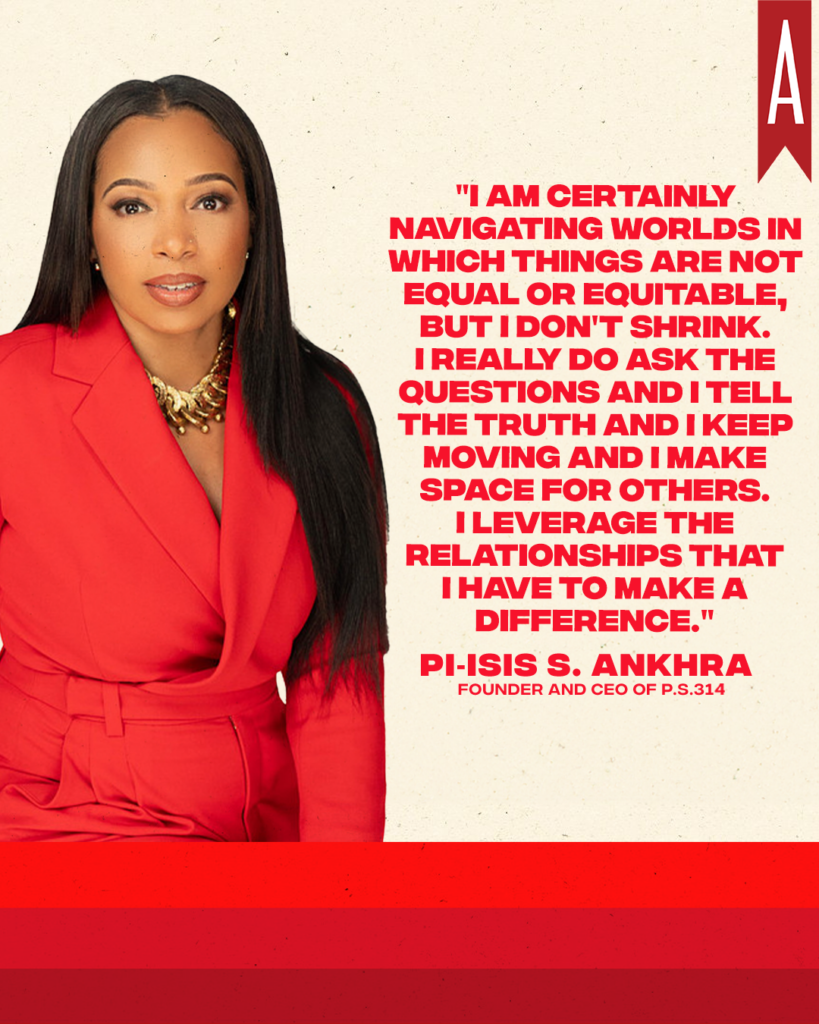
[Edior’s note: This interview has been edited for length and clarity.]

